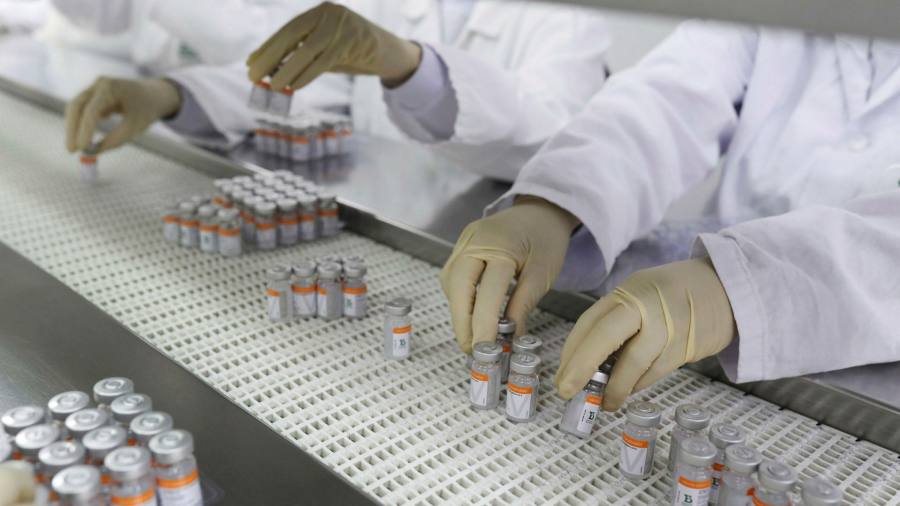[ad_1]
The writer, a former Teva executive, is a lead adviser in manufacturing and supply chain to the US’s Operation Warp Speed
For the pharmaceutical industry, working to combat Covid-19 has been palpably different from business as usual. This time it is not about developing a product that will be a success commercially. Nor is it about finding the solution to a disease or condition before a competitor. It is a race against time, knowing that no company will win alone. Many vaccines will be needed if we are to get a handle on this borderless pandemic.
This race puts enormous pressure on the existing supply chains that manufacture and deliver vaccines. We are trying to do in one year what is normally done in a minimum of three. Manufacturing a safe and effective vaccine requires expensive infrastructure and a trained workforce, and both previously took years to create.
Last May the US started supporting multiple vaccine development programmes in parallel, an effort that was co-ordinated by the departments of defence, and health and human services. The government made available facilities originally created for biodefence purposes. The first large-scale batches were completed well before it was known whether the vaccines were effective, and the government agreed to buy them, assuming the financial risk. This meant we were able to ship millions of doses within hours of receiving the regulatory emergency use authorisation.
Still, resources are in short supply. So when one company’s vaccine programme suffers a setback such as poor trial results, and it is delayed or terminated, manufacturing resources need to be immediately redeployed on the vaccines still in the race.
That is routinely done for materials and components used for drugs manufacturing, as well as “fill and finish†capacity, when vaccines are put into vials and labelled. It is being explored for antigen manufacturing — the making of the raw ingredients — although this is more complex because of the customised nature of factories and processes.
While sharing resources is an attractive concept, and everybody would agree it is the right thing to do, there are constraints that make its implementation much harder in practice. Pharma is a highly competitive industry. It is a lot easier for companies to work closely with a supplier, a customer or the government than ally with a rival.
On the technical side, different vaccine technological platforms require different types of infrastructure. Often they are not interchangeable. A plant suitable to manufacture an mRNA vaccine, cannot be used to manufacture a viral vector vaccine, and vice versa.
However, there are multiple programmes in the race for each technology platform. Assuming setbacks are not platform-related but rather specific to one programme, then there will be other candidates who could use the manufacturing capacity to increase the total supply of vaccine.
I can already hear the objections. If two companies are developing vaccines using the same technology, they most likely are competitors with similar products. US laws and regulations are designed to prevent competitors talking and collaborating, which makes an already unlikely partnership because of existing rivalries legally challenging.
Governments need to play matchmaker, creating incentives for collaboration while allowing existing rules to be adapted. Last July, the US Department of Justice said it would not challenge a group of companies which intended to share data in order to collaborate on the manufacturing of Covid-19 monoclonal antibodies. The department said this was a pro-consumer initiative. Similar overtures in the vaccine space will hopefully add more capacity soon.
This will not be easy. Policymakers must strike the right balance. I hope they will undertake this effort with the required sense of urgency. Companies must turn rhetoric on social responsibility into concrete actions. That means bottling pride, being open to collaborations and negotiating agreements quickly. Every day counts in this race.
[ad_2]
Source link





